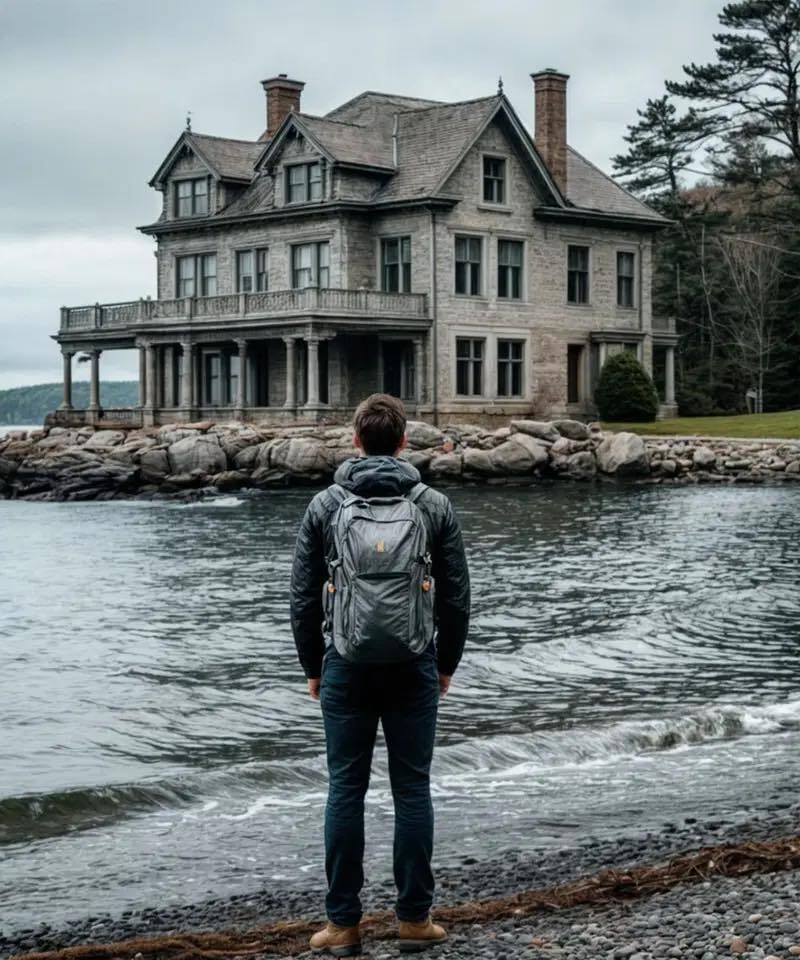While cooking an omelet, Elliott Row got a call that would change his life. A notary, claiming family business, asked him to visit the next day about an inheritance. Puzzled—his parents were alive—Elliott brushed it off but couldn’t shake his curiosity. The call set him on a path to uncover a hidden piece of his past in a mysterious house on a lake.
The next day, Elliott met the notary, who handed him a worn key, a crumpled map, and an address for a mansion on Lake Konamah, Connecticut, inherited from an uncle named Walter Jonas. Elliott had never heard of him, but the notary’s insistence sparked his interest. He drove to the lake, where a grand, old house stood alone in the water’s center, looking like a relic from another era. Locals at a café warned him to avoid it, calling it a place of mystery, restocked only by a shadowy boat at night.

Determined, Elliott persuaded a wary woman at June’s Boats to take him across. She left him at the dock, refusing to stay. Inside, the mansion was a mix of dust and freshness, with heavy curtains dimming tall windows. A 1964 portrait of Walter Jonas stood out, and Elliott felt an odd pull. He found a library packed with annotated books, a study with a telescope and recent journals, and a bedroom with frozen clocks and a locket showing a baby named “Row.” A note read, “Time reveals the past.” An attic clipping from 1997 about his own childhood disappearance stunned him.
That night, a strange noise led him to a hidden staircase behind a tapestry, descending to a corridor with files labeled “Genealogy” and “Row.” Letters to his father mentioned Elliott, pleading for connection. A door marked “Jonas Archive” opened with his palm, revealing a projection of a man claiming to be his biological father, who gave him up but never stopped watching over him. The emotional confession left Elliott reeling. At dawn, June returned, and he quietly said he was okay.
Back home, Elliott confronted his parents, who tearfully confirmed the truth. Weeks later, he returned to the mansion, not to live but to transform it into a Center for Climate and History Studies. The once-secretive house became a vibrant hub, filled with children’s laughter and community life, reflecting the new chapter it opened in Elliott’s life.


